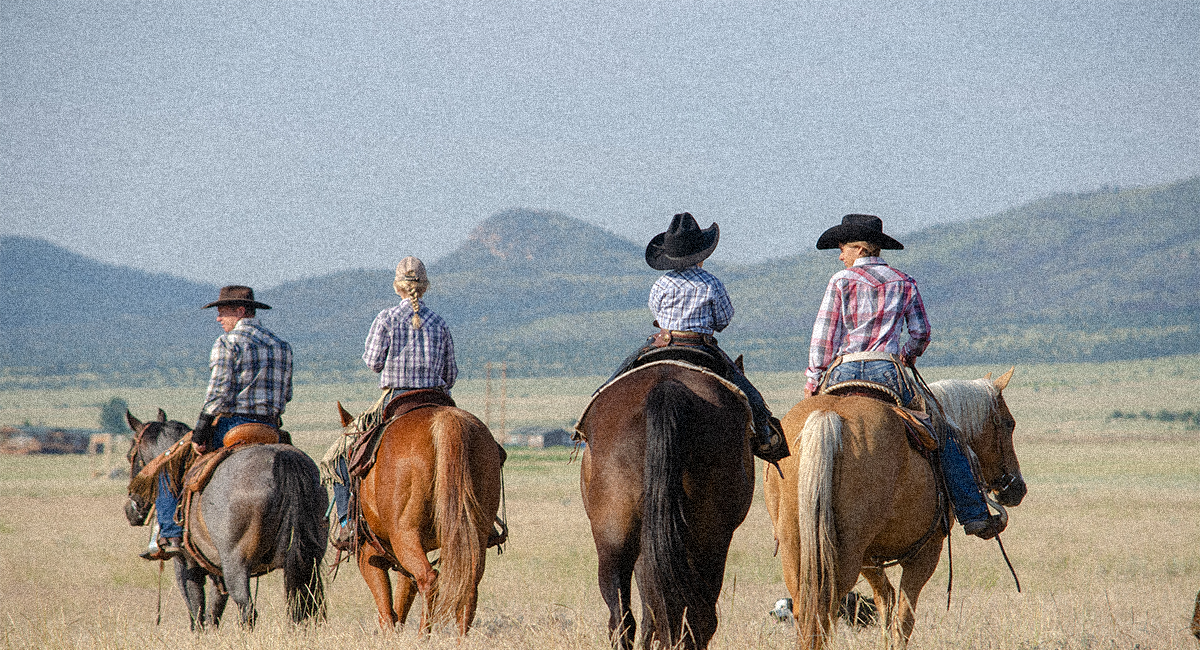Meet Sarah Liljefelt
It takes a skilled, diverse team for cattle producers to continue raising beef to feed their families and communities. Part of that diverse team includes lawyers who can help cattle farmers and ranchers navigate the challenges of legal documents and proceedings.
Sarah Liljefelt is an attorney at the firm of Dunn Carney, LLP in Portland, Oregon, who focuses on water and land rights, specifically with agricultural clients. She graduated from Lewis and Clark Law School in Portland in 2010, and since then, she has worked on water rights, environmental, and natural resources law. Liljefelt is a member of the Oregon Cattlemen’s Association (OCA), Oregon CattleWomen’s Association (OCW) and NCBA.
Getting Engaged in Agriculture
Liljefelt grew up in northern California and is a couple generations removed from agriculture and farming. While her great grandparents once homesteaded a farm in Madera, California, it was sold before she was born, so Liljefelt never had the opportunity to gain experience around livestock. However, growing up in California instilled in her an interest in water infrastructure and how water shaped the history of the American West.
“Fighting about water is so rooted in history, and you can’t do anything without water. It’s so important,” Liljefelt said. “The settlement of the West is a story about water.”
Since her practice area is critical to cattle producers, Liljefelt took it upon herself early in her career to attend OCA and OCW meetings to learn more about issues affecting cattlemen and women. From this, she made friends within OCA and OCW and was “roped into” service within these organizations. Liljefelt currently volunteers as the Water Resources Committee chair for OCA.
“Even though I grew up divorced from an agricultural upbringing, I still had an interest and passion in supporting these industries that feed and clothe us,” she said.
Protecting the Rights of Ranchers
Liljefelt finds immense satisfaction in assisting agriculturists in defending their water property rights and protecting their lands.
“My favorite cases are always ones where you get to help somebody develop something, as opposed to two people fighting about water,” she said. “When you’re helping someone develop or build something, it is so much more satisfying to be able to participate in someone’s business and help them do what they love.”
Over the course of her career, she has helped clients acquire new water rights, sometimes by finding new legal or factual grounds that could be the key to earning those rights. In addition, she often helps clients buy or sell agricultural properties, ensuring those sales go smoothly and all parties understand the nuances (i.e., wells, water rights, public land permits, etc.) of the property.
Current Projects with Oregon Cattlemen’s Association
One of the biggest projects Liljefelt is working on now with OCA and other agricultural groups is a water coalition effort called Oregon Agriculture Water Alliance to draw attention to the priorities around water resources in Oregon.
“The biggest thing that has really fallen short in our state, compared to other western states, is developing storage for drought times and to build resiliency in times of less water,” Liljefelt explained.
The goal of this coalition is to inform the state government of the importance of developing adequate water storage above and below ground in Oregon and encourage funding for storage and aquifer recharge.
This project could greatly benefit cattlemen and women in times of drought if Oregon can collaborate with neighboring states to provide water via upstream mitigation and infrastructure investments. Liljefelt’s goal for the coalition is making this a clear priority to state officials.
Liljefelt isn’t just immersing herself in ranching; she takes every opportunity she can to share the importance of agriculture and food production with her children.
“Whenever I get the opportunity to go out to farms and ranches, I will bring one of my kids with me to use it as a teaching moment,” she said.
Liljefelt is a notable example of how cattle producers can bring people on board in state associations and the cattle industry and show them the intricacy of our food system. For Liljefelt, all it took was someone asking her to get involved. She encourages association members to reach out to persons outside their industries to build strong support within the broader community.
